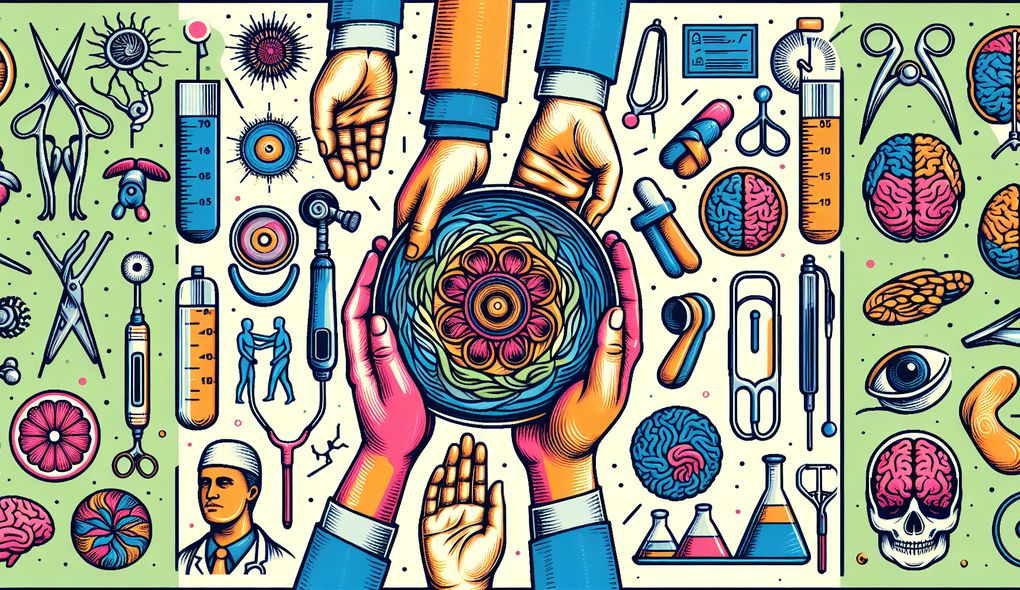How do you approach problem-solving and decision-making in high-pressure situations?
INTERMEDIATE LEVEL

Sample answer to the question:
In high-pressure situations, I approach problem-solving and decision-making by first assessing the situation and understanding the urgency of the problem. I then gather all the relevant information and analyze it to identify potential solutions. I prioritize the options based on their feasibility and potential impact. Next, I consult with relevant stakeholders and experts to gain different perspectives. I make decisions based on a combination of data-driven analysis and intuition. To ensure effective implementation, I create a clear action plan and delegate tasks when necessary. I also monitor the progress and make adjustments as needed. Finally, I reflect on the outcomes and use the experience to improve my problem-solving and decision-making skills for future high-pressure situations.
Here is a more solid answer:
In high-pressure situations, I approach problem-solving and decision-making by leveraging my strong problem-solving skills and ability to think critically under pressure. I start by clearly defining the problem and setting achievable goals. Then, I gather as much information as possible by conducting thorough research and consulting relevant resources. I also rely on my past experiences and domain knowledge to guide me in generating potential solutions. After evaluating each option based on its feasibility and potential impact, I select the most suitable one. In order to ensure effective implementation, I create a detailed action plan, assigning tasks and setting deadlines. I communicate the plan clearly to all relevant stakeholders and monitor the progress closely. In case any obstacles or challenges arise, I remain adaptable and flexible, ready to make quick adjustments if necessary. After successfully implementing the solution, I reflect on the outcomes and learn from the experience to continuously improve my problem-solving and decision-making skills in high-pressure situations.
Why is this a more solid answer?
The solid answer provides a more comprehensive and detailed approach to problem-solving and decision-making in high-pressure situations. It highlights the candidate's strong problem-solving skills, ability to think critically, and agility in adapting to changing circumstances. However, the answer could be further improved by providing specific examples of past experiences where the candidate successfully applied this approach.
An example of a exceptional answer:
In high-pressure situations, I thrive on the challenge of problem-solving and decision-making. I begin by maintaining a calm and focused mindset, understanding that clear-headedness is crucial. I quickly assess the situation, prioritizing tasks based on urgency and impact. Gathering information efficiently, I utilize my strong analytical skills to identify patterns and potential solutions. Drawing on my expertise and experience in movement disorders, I generate innovative ideas and consult with colleagues and experts to gain valuable insights. To ensure effective decision-making, I weigh the risks and benefits of each option, making data-driven choices while considering ethical implications. I also utilize my excellent communication skills to rally the support of team members and stakeholders, fostering collaboration and shared ownership of the outcome. Throughout the process, I remain adaptable and proactive, ready to adjust plans if needed. After implementing the decision, I evaluate the results, applying a continuous improvement mindset to refine my problem-solving and decision-making strategies for future challenges.
Why is this an exceptional answer?
The exceptional answer demonstrates a candidate who not only possesses strong problem-solving and decision-making skills, but also thrives in high-pressure situations. It showcases their ability to stay calm, think critically, and leverage their expertise and communication skills to achieve optimal results. The answer also highlights their commitment to continuous improvement and learning from each experience. However, it could further enhance its impact by providing specific examples of challenging situations the candidate successfully navigated.
How to prepare for this question:
- Familiarize yourself with various problem-solving techniques like the 5 Whys and SWOT analysis
- Practice decision-making under time constraints, such as through case studies or role-playing scenarios
- Reflect on past experiences in high-pressure situations and identify lessons learned
- Develop a strong understanding of the field of movement disorders and stay up-to-date with the latest advancements and research
- Work on improving your communication and interpersonal skills as they are crucial in collaborating with multidisciplinary teams and patients
- Seek opportunities to participate in research projects or contribute to academic journals to further develop your problem-solving and decision-making skills
What are interviewers evaluating with this question?
- Problem-solving skills
- Decision-making skills
- Ability to handle high-pressure situations

